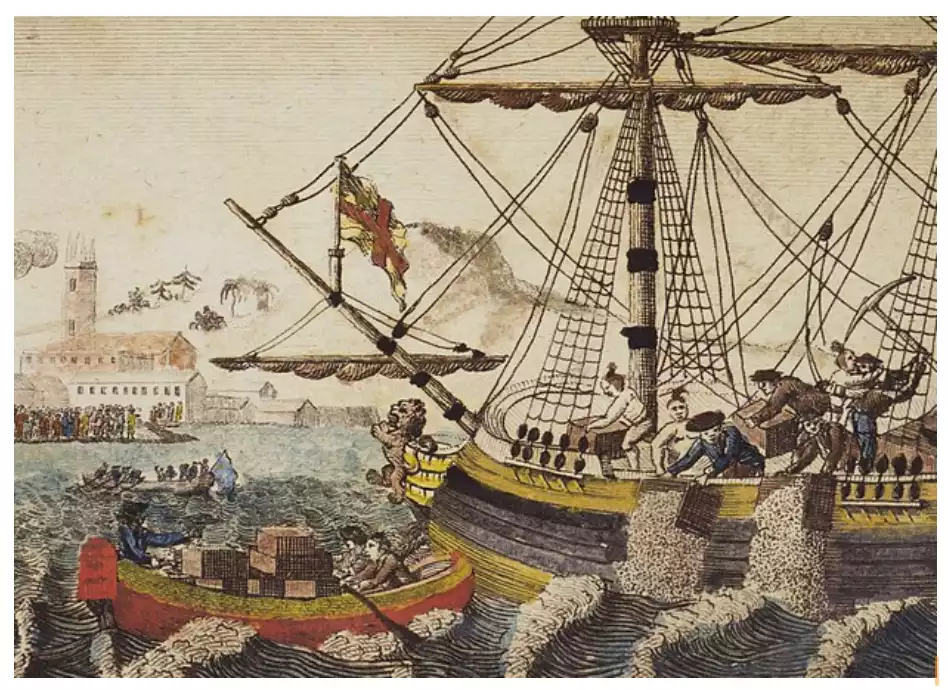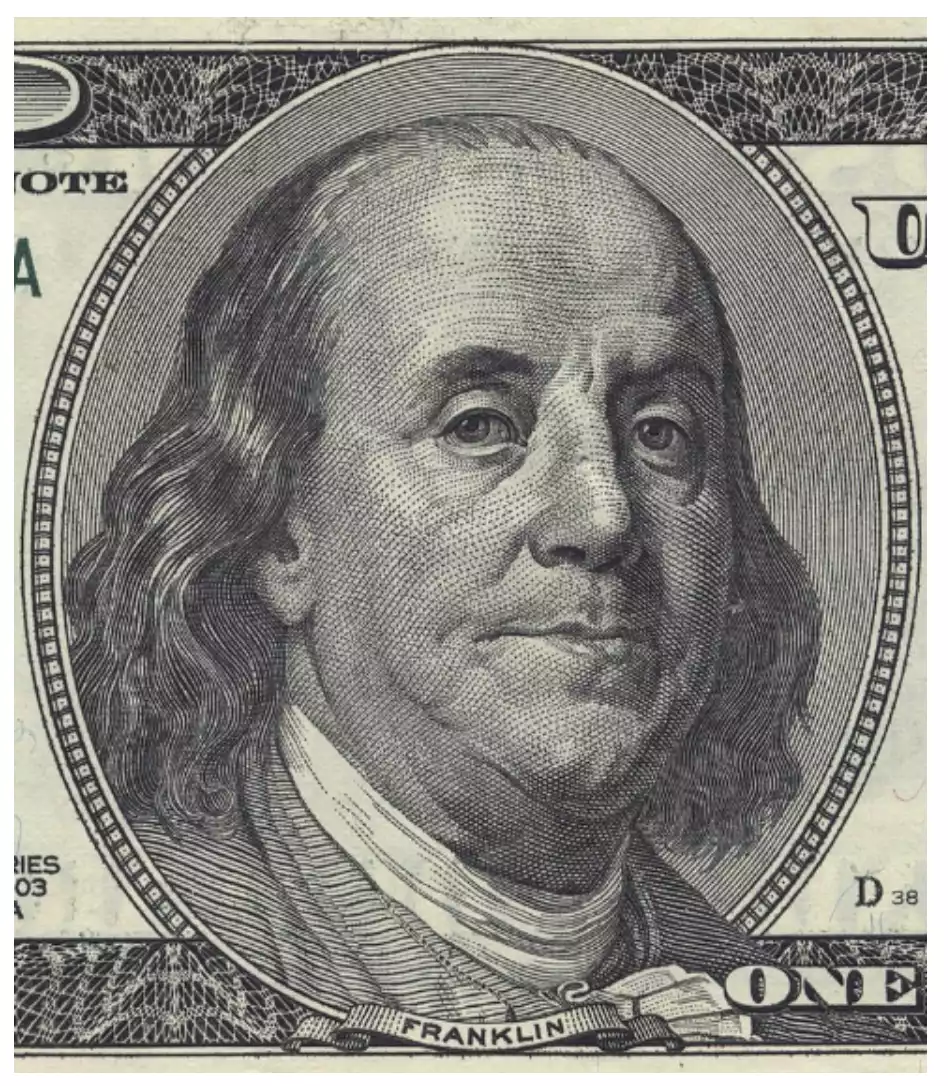The Boston Tea Party Story: Fiction?
News
|
Posted 21/12/2023
|
2198
December 16th has once again passed, and as always, media stories celebrating The Boston Tea Party have popped up to commemorate the historical act of rebellion against tyranny. But is the official story a cover for central banks?

What you may not have known is that the American colonists had their own currency. When England found out about this credit-based currency, they banned it from being used to pay taxes. This led to a sharp depression, and according to Benjamin Franklin, was the real reason for the rebellion:
"The Colonies would gladly have borne the little tax on tea and other matters had it not been that England took away from the Colonies their money, which created unemployment and dissatisfaction."

Colonial Scrip
Colonial Scrip, employed by the colonies, was a credit-based fiat currency and differed significantly from Continental currency issued during the American Revolution. While the latter depreciated rapidly to fund the war, Colonial Scrip had unique characteristics.
Contrary to the conventional European mercantilist system, Colonial Scrip was not backed by gold or silver. This allowed the colonies to regulate its purchasing power independently. In contrast to the debt-based money system requiring governments to borrow from banks and pay interest, Colonial Scrip operated as "bills of credit," created by the government based on its credit. This eliminated the need for interest payments, alleviating the financial burden on colonial governments and fostering prosperity. Governments loaned out this paper money to citizens with land as collateral, charging low interest and reducing the overall tax burden.
The introduction of Colonial Scrip was prompted by the challenges of conducting trade in the colonies due to a lack of gold and silver. As a medium of exchange, each colony issued its own paper money to facilitate trade. Excess notes could be retired through taxation, helping some colonies avoid inflation.
In Pennsylvania, Colonial Scrip was notably effective, as the state controlled the money supply, issuing notes only to meet trade demands and prevent inflation. Pennsylvania's approach to managing the currency involved establishing a "land bank." Landowners could borrow Scrip with their land as collateral, with the loan amount based on both the actual land value and its production potential. The loan, repayable over a specified period, led to the restoration of land ownership upon full repayment. This system contributed to stability in price levels, as noted by economist Dr. Richard A. Lester, who observed that Pennsylvania's price levels during the 52 years on a paper standard were more stable than subsequent fifty-year periods in America.
When it Came to an End
The English Parliament banned Colonial Scrip through the Currency Act after Benjamin Franklin extolled its benefits to the British Board of Trade. The outlawing of this circulating medium led to a depression in the colonies, and many, including Franklin, believed it to be a primary cause of the American Revolution as well.
Benjamin Franklin stated. "In one year the conditions were so reversed that the era of prosperity ended, and a depression set in, to such an extent that the streets of the Colonies were filled with unemployed." Franklin stated: "The Bank of England refused to give more than 50 percent of the face value of the Script when turned over as required by law. The circulating medium of exchange was thus reduced by half."
What They Learned
After battling the English, despite incredible sums from overseas lobbying, the new American Constitution was made to read:
Article I, Section 8, Clause 5:
“[The Congress shall have Power . . . ] To coin Money, regulate the Value thereof, and of foreign Coin, and fix the Standard of Weights and Measures;…”
This made it clear that money shall be created by the government. So, what has changed?
There has been a serious lack of education about monetary history. This has been guided by certain figures historically and today. After The Boston Tea Party, in 1780, a central bank hireling named Alexander Hamilton proposed a privately owned central bank for America. This was the antithesis to freedom and liberty. This is the same obscure figure being celebrated today as a hero with his own musical. The dry, colonial central banking agent is now seen on stage and on TV dancing and rapping about freedom, liberty, and equality – the things he was paid to destroy.
The Boston Tea Party just happened to involve destroying what British ships were carrying at the time: Tea. This does not make it a direct attack on tea-related issues, just as the attack on Pearl Harbour was not due to a rising cost in pearls. Learning and celebrating history is very important, as long as the history is correct.